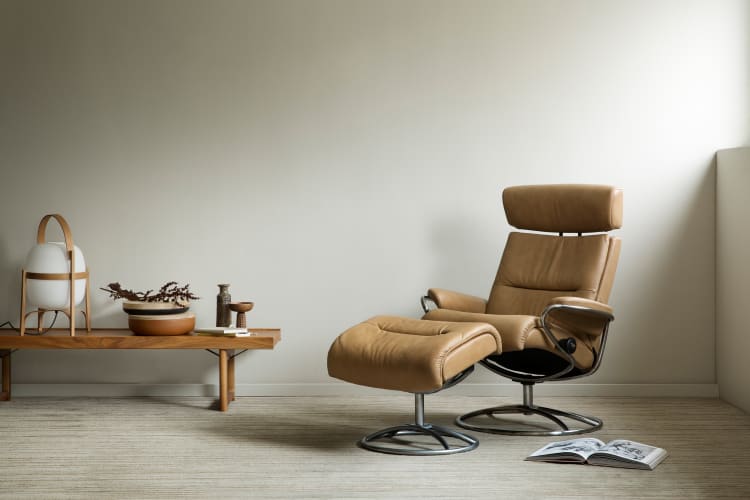
As of November 2021, Ekornes, a Norwegian manufacturer of high-end design furniture uses EPS (expandable polystyrene) protective packaging that has a lower carbon footprint than virgin material by safeguarding the same properties. This is achieved by replacing fossil resources with recycled raw materials at the beginning of production. BASF supplies Styropor Ccycled to VARTDAL PLAST, who converts the material into moulded packaging parts for Stressless furniture made by Ekornes.
“We are really proud to be the first company to launch this project together with VARTDAL PLAST and BASF with regards to design furniture. We always strive to have the best packaging solution to protect our quality furniture, and Styropor Ccycled offers exactly what we want: same properties as virgin material but at the same time meeting the needs to reduce our carbon footprint, a perfect fit into our sustainability strategy,” says Solveig Gaundal, Compliance and CSR Manager at Ekornes.
Virgin-quality packaging – smaller carbon footprint
Due to its manufacturing process, Styropor Ccycled™ has the same properties as conventional Styropor. This maintains the excellent packaging properties such as outstanding impact absorption and high compressive strength, which are essential for the protection of sophisticated design furniture. In the production of the packaging foams that have become so well-known over the last 70 years, pyrolysis oil replaces fossil raw materials. BASF sources this oil from technology partners who use a thermochemical process called pyrolysis to transform post-consumer plastic waste that would otherwise be used for energy recovery or go to landfill into this secondary raw material. BASF then uses the oil at the very beginning of the value chain to manufacture new plastics and other products.

Since recycled and fossil raw materials are mixed in production and cannot be distinguished from each other, the recycled portion is allocated to Styropor Ccycled™ using a mass balance approach. Both the allocation process and the product itself, have been certified by an independent auditor. Compared with conventional Styropor, at least 50 percent of CO2 is saved in the production of Styropor Ccycled.
Also, for the converter VARTDAL PLAST Styropor Ccycled™ brings a lot of advantages as the product is identical to virgin material. Therefore, the production process does not have to be adjusted. The company and their products are certified according to the ecoloop certification programme, confirming that for the products 100 % recycled material was used as feedstock. “We are thrilled to be working together with BASF and Ekornes on this project. This is a testament of our mutual commitment towards a more sustainable future,” says Mounir El'Mourabit, product manager at VARTDAL PLAST.
Contributing to the circularity of plastics – conserving resources – protecting the environment
“Current environmental policy focuses on reducing greenhouse gas emissions, conserving fossil resources, and avoiding or using waste. By using products from our ChemCycling™ project, our partner Ekornes is actively contributing to the recovery of plastics after their use phase and feeding them back into the materials loop,” says Klaus Ries, head of BASF’s Styrenics business in Europe.



